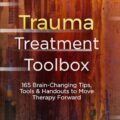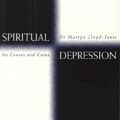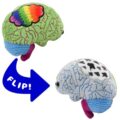Feeling down and seeking ways to cope with depression? Self-help books can provide valuable insights and comfort.
Also Read
Depression affects millions worldwide. Self-help books offer practical advice and emotional support. Reading can be a powerful tool for understanding and managing your feelings. These books can teach you techniques to improve your mental health. They cover topics like mindfulness, cognitive-behavioral strategies, and positive thinking.
Many people find solace and strength in these pages. Remember, while self-help books can be beneficial, they are not a substitute for professional help. It’s always a good idea to consult with a healthcare provider if you struggle with depression.
Buying Guide On Self-help Books For Depression
self-help books for depression: a complete buying guide
1. Identify your needs
understanding what you need is important. Different books serve different purposes. Some books offer practical tips. Others focus on emotional support. Choose based on your personal needs.
2. Read reviews and ratings
check reviews before buying. Honest opinions help make informed decisions. Look for books with high ratings. Read both positive and negative reviews. This gives a balanced view.
3. Consider the author’s background
research the author’s experience. Authors with mental health expertise are preferable. Their knowledge can provide reliable advice. Authors with personal experience also offer valuable insights.
4. Look for evidence-based content
choose books based on research. Evidence-based content is more reliable. This ensures the advice is practical. Avoid books with unsupported claims. They might not be effective.
5. Check for easy-to-understand language
books should be easy to read. Complex language can be confusing. Simpler language aids comprehension. Ensure the book is written clearly. This makes the advice more accessible.
6. Assess the book’s format
consider the format that suits you. Some prefer physical books. Others find e-books more convenient. Audiobooks are a good option too. Choose what fits your lifestyle.
7. Sample the content
many books offer a preview. Read a few pages before buying. This helps gauge the book’s tone. Ensure it resonates with you. It should feel engaging and relatable.
8. Set a budget
determine how much you can spend. Self-help books come in various price ranges. Higher price doesn’t always mean better quality. Look for affordable yet effective options.
9. Seek recommendations
ask friends or family for suggestions. Personal recommendations can be trustworthy. Join online forums for more ideas. Community insights can be very helpful.
10. Evaluate the book’s structure
check the book’s organization. Well-structured books are easier to follow. Look for clear chapters and sections. This helps in finding relevant information quickly.
11. Verify availability and delivery options
ensure the book is easily available. Check delivery options if ordering online. Quick and reliable delivery is important. This avoids unnecessary delays in getting the book.
Conclusion
Exploring self-help books for depression can be a valuable step in managing your mental health. These books offer insights and strategies to cope with difficult emotions. They provide guidance and support when you need it most. Remember, you are not alone in this journey.
Many people find comfort and hope through reading. It’s important to choose a book that resonates with you. Take your time to find the right one. Reading can be a powerful tool for healing. It allows you to reflect and gain new perspectives.
Keep in mind that while books can help, they are not a substitute for professional help. If you feel overwhelmed, reach out to a mental health professional. They can offer additional support and treatment options. Your mental health is important.
Take steps to care for yourself.























